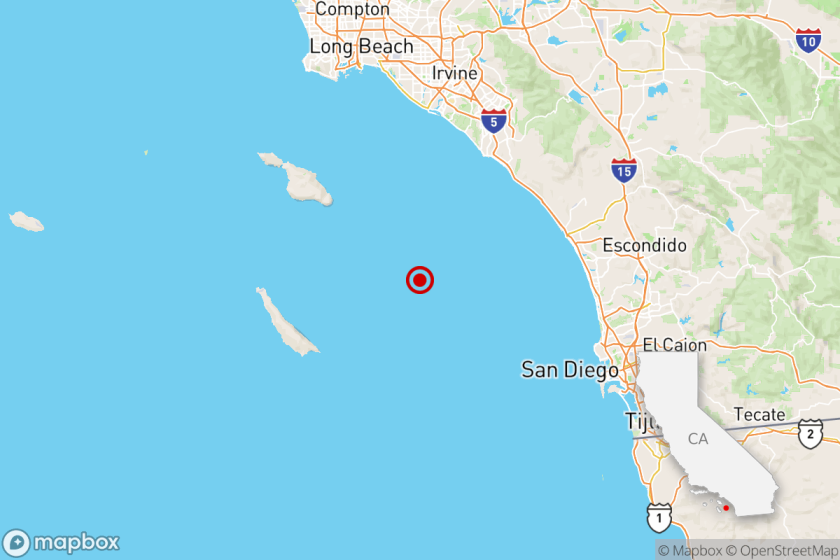Lender OK Can Be a Monkey Wrench in Condo Repairs
For many condo associations in the San Fernando Valley, Ventura County and elsewhere, the aftershocks from last year’s Northridge earthquake just keep coming.
Now, the problem is that much-needed repairs to thousands of condos have been held up by the lengthy process that condominium associations must go through in order to get started.
It’s all because of provisions contained in association governing documents--known as covenants, conditions and restrictions. Many of these agreements require condo associations to notify the financial institutions and individuals who hold mortgages at the condo complex before special assessments can be made to pay for repairs.
It usually takes between three and five months to identify, contact and elicit a response from all of the first mortgage holders. Some of the governing agreements require that 75% of the lenders agree in writing before the association can do what’s necessary to recover from the Northridge temblor.
“We’re dealing with this situation every day,” said A. J. Durtschi, executive vice president of Bartlein & Co. Inc., a condo management company in Santa Clarita. “It’s been a nightmare.”
Durtschi said one of his clients--a 27-unit complex in Simi Valley--spent nearly five months getting lenders to agree to a special assessment of just $25 a month for residents.
In Santa Clarita, Durtschi said, he again spent about five months getting 75% of lenders in a 296-unit complex to agree to a special assessment of less than $25 a month for earthquake repairs. The process involved sending out two mailers to unit owners, four mailers to lenders and making countless follow-up telephone calls.
Of the 32 associations with earthquake damage that Durtschi represents, seven have governing agreements that require lender approvals for rebuilding or repairs to the common areas. Loans that have been approved for an association sometimes have to be extended several times while associations wait for the OK of individual mortgage lenders.
Assembling lender approvals isn’t just time-consuming, it’s also expensive, Durtschi said. The approval process usually costs a minimum of about $1,000 for most condo projects, but costs can skyrocket depending on the circumstances. If too few lenders respond, the association may be able to get a court order allowing the work to proceed, but that can add thousands of dollars to association attorney bills.
An added expense, Durtschi said, is lenders who ask as much as $75 to review an association’s request. If there are many lenders who demand money to review the request, the whole process becomes even more expensive for associations and their members. Some associations see the request for money to review the request as “blackmail,” Durtschi said. But associations frequently have no other choice than to pay up.
“It becomes messy and frustrating,” Durtschi said, but “we haven’t found a fast way to do it.”
Condo managers and condo attorneys report that lenders have been cooperative for the most part in replying to requests for their consent to a special assessment or to a request to rebuild.
Residents of condo associations can help speed the approval process along by providing their association with information about who their mortgage lender is. The information provided by residents isn’t always accurate, though. And the address to which a borrower sends the monthly mortgage payment may not be the right address to send requests for special consents.
The process of getting lender approvals is so daunting that some associations are just ignoring it, said Laura J. Snoke, partner at the law firm of Wilner, Klein & Siegel in Beverly Hills. “Logistically, it’s very difficult to get the lenders to respond; there’s a big apathy factor.” As a result, “the CC&Rs; are frequently ignored.”
The directors and officers of associations that scoff at their own governing documents could find themselves faced with serious lawsuits, either by disgruntled residents or a lender who gets wind of what’s going on.
*
Associations need to be familiar with their own governing agreements as they embark on earthquake repairs or anything else, said Lynette Findlay, president of Aberdeen Management Inc. in Burbank and Santa Clarita, and president of the Greater Los Angeles chapter of the Community Associations Institute, a condo trade group. Some covenants have no requirement that lenders need to approve of certain association activities. Others provide that if a certain percentage of lender disapprove then the association can’t move forward with its plans.
Some documents require lender approvals only when more than 51% of a condo complex has been destroyed. Reading the documents carefully is essential, Findlay advised.
Lenders such as Great Western are seeing more requests for consents from associations than before and they say they are trying to process the requests as quickly as possible. The number of requests for lender approvals has more than doubled in the past few months at Great Western, said Tim McGarry, a spokesman at the bank’s headquarters in Chatsworth.
“We look at the impact it would have on us if we took the property back,” he said. To date, McGarry said, the bank hasn’t turned down any associations in their special requests.
More to Read
Sign up for Essential California
The most important California stories and recommendations in your inbox every morning.
You may occasionally receive promotional content from the Los Angeles Times.










